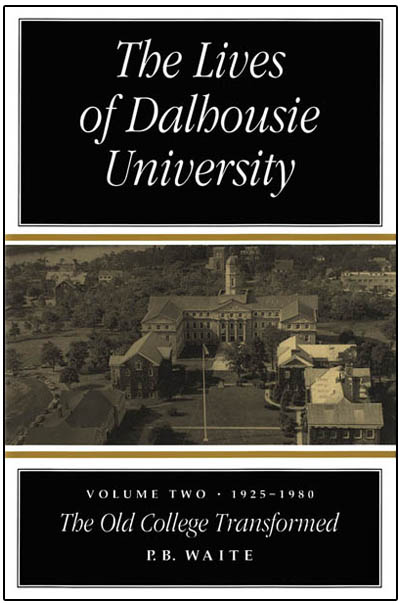 This article is part of an ongoing series highlighting plans in the works for DalhousieÔÇÖs 200th anniversary celebrations in 2018. For more features, visit our archives and learn more about Dal 200 at .
This article is part of an ongoing series highlighting plans in the works for DalhousieÔÇÖs 200th anniversary celebrations in 2018. For more features, visit our archives and learn more about Dal 200 at .
Libraries are much more digital these days, but the ║┌┴¤│ď╣¤═°Libraries are getting back to their roots of books and archival materials to celebrate Dal 200.
In September 2018, ║┌┴¤│ď╣¤═°will have a bigger-than-ever presence at HalifaxÔÇÖs , a festival designed to encourage discussion on the value of literature and literacy.
 ÔÇťWord on the Street is a perfect place for ║┌┴¤│ď╣¤═°to be, especially for Dal 200,ÔÇŁ says Donna Bourne-Tyson, University Librarian. ÔÇťThousands of people come out for the festival, many of whom have some connection to Dalhousie. For those who donÔÇÖt, itÔÇÖs a chance for us to make a connection with them by showing them what we have to offer, whether it be programs, events, or books.ÔÇŁ
ÔÇťWord on the Street is a perfect place for ║┌┴¤│ď╣¤═°to be, especially for Dal 200,ÔÇŁ says Donna Bourne-Tyson, University Librarian. ÔÇťThousands of people come out for the festival, many of whom have some connection to Dalhousie. For those who donÔÇÖt, itÔÇÖs a chance for us to make a connection with them by showing them what we have to offer, whether it be programs, events, or books.ÔÇŁ
At the Word on the Street festival, Dal will have a table and an authorÔÇÖs stage. Marlo MacKay, communications coordinator for the ║┌┴¤│ď╣¤═°Libraries, says theyÔÇÖre just at the point of forming an ad hoc committee with students and faculty to determine who will read at the ║┌┴¤│ď╣¤═°stage.
ÔÇťWe want to ensure that DalhousieÔÇÖs diversity and community impact are reflected in the chosen authors,ÔÇŁ says MacKay. ÔÇťWeÔÇÖre also looking for input on which book will be our pick for 2018/19.ÔÇŁ
Contact marlo.mackay@dal.ca to get involved in the Word on the Street ad hoc committee or Dal Reads.
Connecting with history
The Dal LibrariesÔÇÖ Archives has been buzzing with activity for several years in preparation for Dal 200. Michael Moosberger, DalhousieÔÇÖs associate university librarian for archives, special collections and records management, is also a member of the campus-wide planning team for Dal 200.
ÔÇťThe Archives hold a wealth of ║┌┴¤│ď╣¤═°history, and of course, to celebrate a milestone like this we want to look back on it,ÔÇŁ he said.
 The Archives have taken a digital copy of The Lives of Dalhousie, and and made it available for online viewing on GitBook, an open source online book-hosting platform. The digitized versions will also be uploaded to DalSpace, Dalhousie's institutional repository. The final phase of the project includes creating an enhanced digital edition of the original volumes, with additions such as links and images, in an online exhibit format to complement and enhance the print volumes.
The Archives have taken a digital copy of The Lives of Dalhousie, and and made it available for online viewing on GitBook, an open source online book-hosting platform. The digitized versions will also be uploaded to DalSpace, Dalhousie's institutional repository. The final phase of the project includes creating an enhanced digital edition of the original volumes, with additions such as links and images, in an online exhibit format to complement and enhance the print volumes.
ÔÇťAs the Archive of the university, we digitize significant university publications and photographs on an ongoing basis, but we are putting some extra resources into this effort in time for 2018,ÔÇŁ says Moosberger. ÔÇťAt present, we have digitized copies of the ║┌┴¤│ď╣¤═°Gazette, Pharos, university calendars, as well as photographs from Dal's Athletics and Communications & Marketing departments.ÔÇŁ
In addition, the Dal Libraries have provided significant archival research support to the Dal 200 anniversary website's historical timeline, providing historic images and nuggets of information in an engaging format. To view the timeline, visit For 2018, the Archives are planning to share a daily post on Twitter relating to DalÔÇÖs history.

